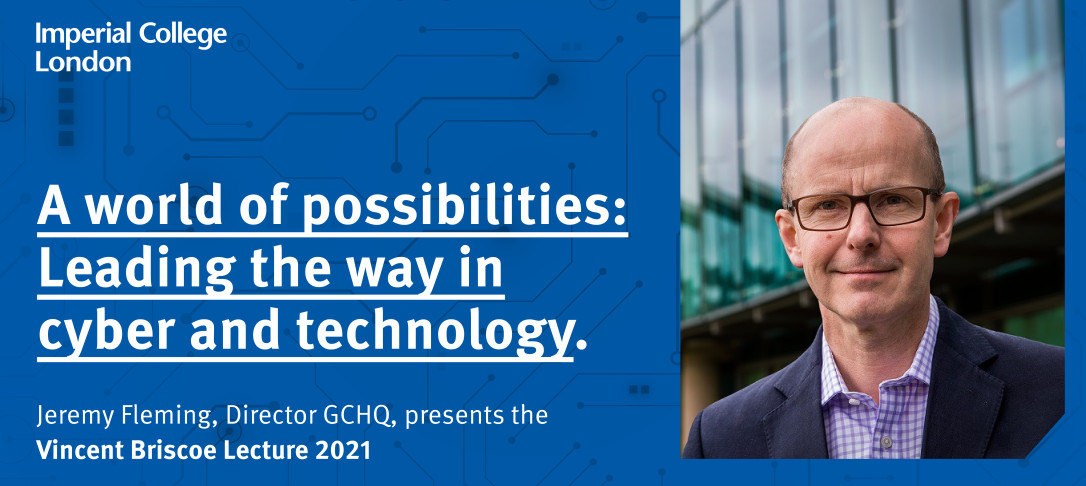
Jeremy Fleming, Director GCHQ, delivers the Vincent Briscoe Lecture for the Institute for Security Science and Technology.
Jeremy Fleming, Director GCHQ, considers the impact fundamental changes in the tech environment have had on our economy and society. The global pandemic has accelerated those trends at home but has also enabled our adversaries in new ways. He examines the challenges surrounding geopolitical competition in technology, and the need to reform the international approach to cyber and technology for the 21st century. From cyber power through to combatting Covid-19, he will explore the UK’s unique opportunity to lead the next phase of the global digital revolution.
About the Vincent Briscoe Security Lecture
The Vincent Briscoe Lecture is the annual lecture from the Institute for Security Science and Technology, Imperial College London, named in honour of Professor H.V.A. Briscoe (b.1888, d.1961). Vincent Briscoe was a distinguished inorganic chemist in the Department of Chemistry (1932 – 1954).
During his war work he explored the chemistry of thorium and the rare earths as well as working on a number of secret projects. In his book, Defence of the Realm, Professor Christopher Andrew credits Briscoe with providing the first independent scientific advice to MI5, in 1915, on the subject of secret German writing. Service records indicate Briscoe’s continuing assistance throughout the inter-war years and during and after the Second World War.
About the Institute for Security Science and Technology
The Institute for Security Science and Technology (ISST) is Imperial College London’s Global Challenge Institute focussed on security and resilience. We deliver sientific research, education and innovation for a secure and resilient world.
Security is often only viewed through the narrow lens of conflict and war. Our mission at the Institute for Security Science and Technology is to challenge that perception and demonstrate the breadth and depth of a topic that touches everyone in society, wherever they are in the world.
Individuals, organisations and nations experience insecurity in diverse ways, ranging from scarcity of water, nutrition and natural resources through to economic hardship, political instability, health crises and exposure to hostile threats from criminals, terrorists and nation states. Our goal is to understand and solve these complex, interrelated global challenges through the development and application of world-leading science and technology; a hallmark of Imperial College London.
As our societies and infrastructures become ever more interconnected, slow formulaic security reactions will need to give way to predictive analysis, agility and continual learning. In an imperfect socio-technical world, we believe that science and technology guided by the values of inclusivity, stability, peace and equity for all, as described by the UN Sustainable Development Goals, is the best way to strive for global security and that these values are worth defending.
As humanity extends its presence beyond the surface of the planet, moves towards the birth of true artificial intelligence and harnesses the quantum scale, we are committed to working with the best minds from academia, industry and government who share our view that science and technology can deliver a more secure and resilient world for everyone.